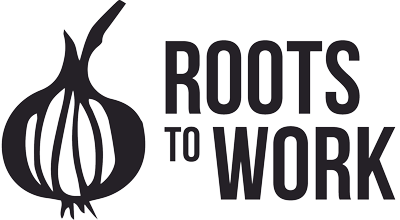
Sustain is committed to recruiting for diversity, with a priority focus on improving the ethnic and cultural diversity of our staff team. We are also committed to publishing our progress as part of The RACE Report. The environment and conservation sectors are amongst the least ethnically diverse in the UK. A collaboration of groups, coordinated by SOS-UK, created The RACE Report, focusing on charities and funders working on environmental and conservation issues, highlighting the need for greater representation in sustainability and climate action. In the 2023 RACE Report, the data showed that whilst 15% of the UK population are Black people and people of colour, an average of only 6% of the employees of 140 UK environment groups are from these groups.
Targets and benchmarks
The RACE Report suggests that organisations need to set a target for ethnically diverse representation in their staff teams, as a key motivator to drive action and change. Without a measurable statement of intent, there is a risk that efforts to recruit for ethnic diversity and better representation in staff teams can remain tokenistic and not be treated as a continuously renewed priority.
At Sustain, we also recognise that there are some structural challenges in only using a numerical target to drive positive improvements in how representative the staff team is. We want to identify these, and address them as far as possible, to prevent them being barriers to change. We are sharing this article for transparency, to widen the conversation and stimulate the sharing of ideas across the sector.
Read more about Sustain’s variety of actions taken to improve our recruitment for diversity
Read more about Sustain’s approach to culture, policies and practices for diversity, equity, inclusion and racial justice
Characteristics of our team and circumstances
Sustain is a UK charity, registered in England and Wales. Our head office and the majority of our team of colleagues – employees, paid interns, student placements and volunteers – are based in London. Typically, our team is around 30 people, the majority on permanent contracts, with a few people on short-term contracts, for example to provide maternity cover. We also host some paid internships and student placements offering work experience and learning opportunities for younger people from diverse backgrounds, as well as welcoming volunteers to support what we do.
Sustain is a majority female organisation across the leadership team, staff team, and our Council of Trustees. In the period covered by the 2022 RACE Report, Sustain employed one person of colour. In the period covered by the 2023 RACE Report, Sustain employed 4 people of colour (13% of the team), plus 3 people of colour employed by Sustain in other ways.
[Note: We generally use the description "Black people and people of colour". In this blog this may be summarised using the collective term 'people of colour' or 'colleagues of colour'.]
This might appear to be a positive picture and pattern of improvement in representation. However, a snapshot of numbers could lead to complacency. Like many organisations in our sector, Sustain’s projects and teams change a lot over time, so we do not yet know if this snapshot of apparent improvement in ethnic diversity is the permanent pattern needed to provide the solid foundations of structural change over time. We have to make sure that improvements are maintained and amplified, and ensure that we don’t become complacent. Could targets or benchmarks help or hinder?
Characteristics of the UK population
Statistics on the ethnic diversity of the UK and London populations are shown in the table below. We have also translated these statistics into what our team make-up would look like if we were more representative of the ethnic make-up of the UK and/or London populations.
| Ethnicity groupings used by ONS, 2021 | England and Wales | UK % | In a team of c.30 | London % | In a team of c.30 |
| Asian, Asian British, Asian Welsh | 5,500,000 | 9 | 3 | 20.7 | 6 |
| Black, Black British, Black Welsh, Caribbean or African | 2,400,000 | 4 | 1 | 13.5 | 4 |
| Mixed or Multiple | 1,700,000 | 3 | 1 | 5.7 | 2 |
| White | 48,700,000 | 82 | 25 | 53.8 | 16 |
| Other ethnic group | 1,300,000 | 2 | 1 | 6.3 | 2 |
| TOTALS of which BPOC |
59,600,000 |
100 |
31 5 |
100 |
30 12 |
Data sources: Office of National Statistics (ONS): for London; for UK
Using UK Office for National Statistics (ONS) population and ethnicity data (2021), this suggests that:
- Based on UK (England and Wales) population make-up: At least 5 people on Sustain’s team should be from Asian, Black or Mixed ethnic heritage, if we were to be numerically representative of the wider population in England and Wales, the region in which Sustain is registered as a charity, and the geographical area across which Sustain mainly works.
- Based on London’s population make-up: At least 12 people on our team should be from Asian, Black or Mixed ethnic heritage, if we were to be numerically representative of the wider population in London, where Sustain’s head office is based.
Overall, we should also consider that White ethnicity represents the minority of people on the planet, and that Black people and people of colour are the global majority. We should not treat numbers or percentages as limits, only as guidance and a driver for change within the context of a UK-based and UK-focused organisation.
Challenges with shorter-term projects
There are some challenges with using a numerical target, and with keeping up improvements or performance over time.
One issue in the charity / non-governmental sector is employment precarity. Sustain’s work is organised through pilots, projects, campaigns and advocacy work. This is funded mainly by charitable grants usually of between one year and five years in length (more typically two to three). These arrangements are also associated with changing specialisms and priorities over time.
Management of our recruitment and employment contracts is a constant jigsaw puzzle, to help support a creative mix of policy, advocacy and project work; whilst giving people as much job security as possible, and also responding to changing priorities, organisational and programme needs and the funding available.
This means that Sustain’s team changes over time. Some people transfer into new areas of work; some people move on to work elsewhere. We are aware that this pattern suits some people who enjoy flexibility and evolution of roles. But for others this may be more difficult to manage, given inherent challenging characteristics of uncertainty and change. People with the privilege of more confidence, financial security, housing security or other backing may be in a more comfortable position to be able to handle changing working arrangements.
Sustain can work with colleagues to find ways to offer as much a job security and income security as possible, plus helpful arrangements such as flexible working. We can also get better at being transparent and supportive to help manage the uncertainties that do arise. But is this enough to be able to support and maintain progress on ethnic and cultural diversity in the staff team over time?
Working across the sector
Organisations such as Sustain can do a lot to make the recruitment and induction processes for staff roles as open and accessible as possible, strongly signalling that people with ethnically diverse heritages are welcome, actively sought after and encouraged to apply. Sustain has published our approach to recruitment for diversity, embed this into our practices, and this must remain an area of our policy and practice that needs ongoing iterative improvement. We also need to do more to enable people to feel supported and included in their roles and the organisation, and to know from the start that this is a conscious characteristic of the organisational culture.
However, we also recognise that in a majority White sector, we probably aren’t promoting our work in the best way to recruit diverse talent. Our address books and contact lists need to be consciously and proactively changed so that we reach out beyond our habitual ‘bubble’. We probably don’t know enough people, and we probably don’t know enough about what people from diverse ethnic backgrounds are looking for and would find attractive. The culture and norms of an organisation can be inherently White, which may make people either not be attracted to a role or not stay in it for long. Also, does the work we offer – and the way we offer it – match people’s hopes and expectations for their passions, training, personal development and careers?
It may also be daunting for new entrants coming into a sector that is less familiar and doesn’t (yet) have enough role models of people leading and contributing from a diverse range of ethnic backgrounds and identities. Yet we have to start somewhere and build towards shared goals. This probably signals that we need to do much more – proactively and consciously – to support the pioneers of change, platform role models and provide support as allies so that individuals don’t have to ‘go it alone’.
At Sustain, we have an internal colleagues of colour group that also works with other pioneers in the sector, and are exploring offering mentoring or career coaching to colleagues of colour, to help them develop their personal plans and be more confident to ask for the support and secure the opportunities they need and deserve.
Supporting new entrants
For new entrants and career changers, some of this is also about offering paid internships, work placements and Trustee role-shares, to help people from ethnically diverse backgrounds gain experience in the sector.
However, we should also be aware that offering short-term paid internships (including focused on creating career-boosting opportunities for people from ethnically diverse backgrounds), work/student placements or volunteering can artificially inflate an organisation's apparent diversity and numerical measures.
We are talking about numbers and targets in this article. It may be that reporting separately on the number of such placements or internships offered, plus what we have learned and how well these were received, would be a better marker of progress in this area. We need to take care when reporting on our diversity progress that we clear what the numbers mean, and how we are using these to drive progress, not as a tickbox or tokenistic exercise.
Focusing on the right things
We’ve talked about targets and numbers in this article. This is helpful to some extent, but must not distract us from what’s most important when employing and supporting Black people and people of colour.
The quality of each person’s experience, how they feel welcome and included, their terms of employment and their opportunities to develop, progress and lead the way are what really matter, and must stay central.



